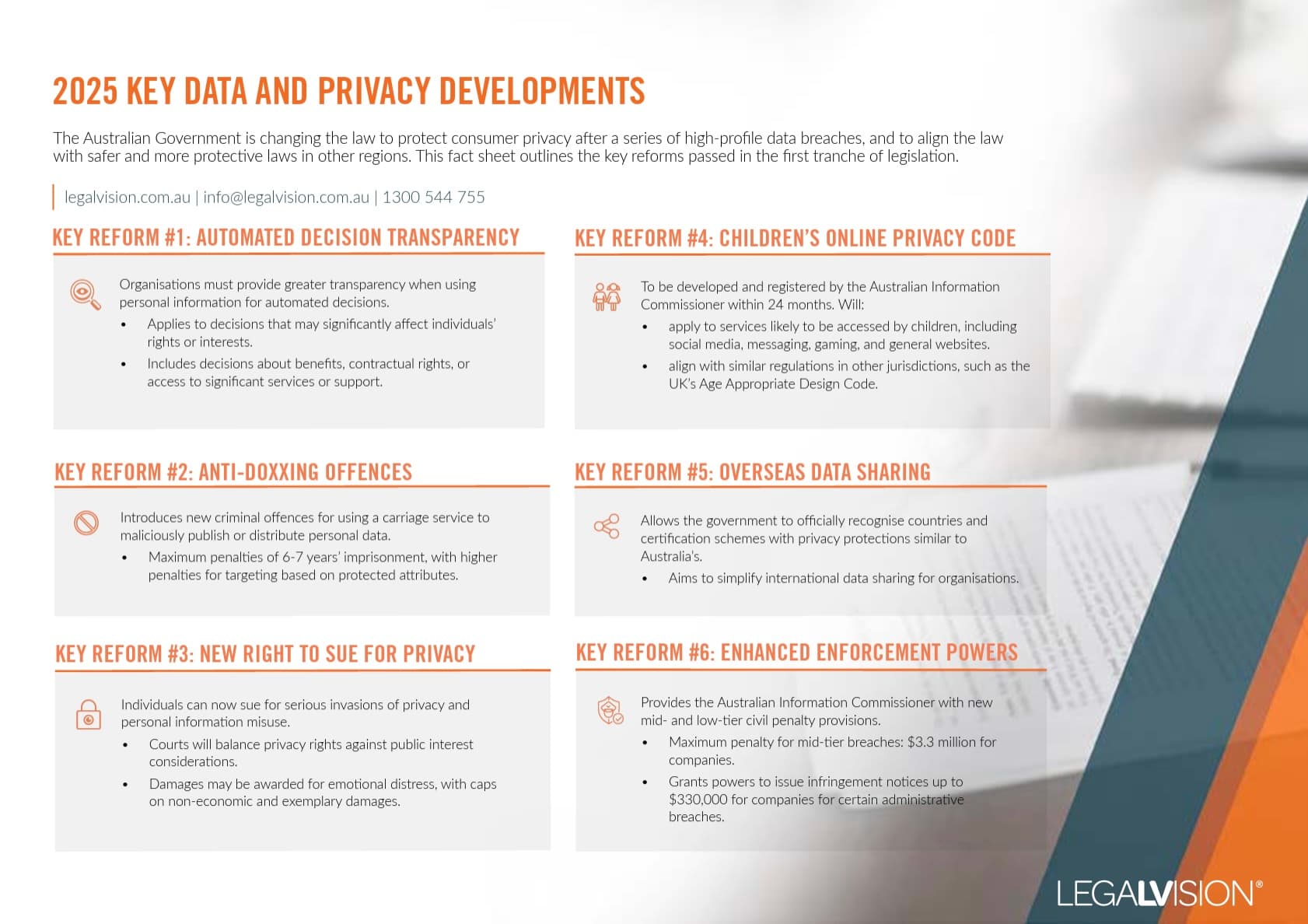Data protection and privacy laws are crucial for fashion and beauty businesses like yours. Knowing these rules and safeguarding personal information is beneficial because it builds trust with regulators and the community. Prioritising compliance inspires support from customers. Your business should comply with rules regarding the collection and use of information. This article explores the key issues of data protection and privacy laws for your fashion and beauty business.
What Does Data Privacy Cover?
Data privacy involves protecting individuals from unwarranted intrusions on their autonomy. It is a critical consideration for fashion and beauty businesses due to the personal information they gather about clients. For instance, you often gather the following for promotional purposes:
- customer names;
- signatures;
- contact details; and
- photographs.
Releasing such data without consent would lead to legal consequences stemming from your obligation to safeguard personal information.
In the Privacy Act 1988 (Cth), “personal information” refers to data or opinions about an identifiable or reasonably identifiable individual. This includes “sensitive information“, such as details about an individual’s health or ethnicity.
Which Businesses Are Included?
If your fashion and beauty business makes over $3 million in annual turnover, then the Privacy Act applies to you. Your annual turnover encompasses income from all sources except for:
- assets held;
- capital gains; or
- proceeds from capital sales.
You can choose to adopt the Australian Privacy Principles (APPs) outlined in the Privacy Act. Doing so not only demonstrates goodwill but also enhances your reputation.
Continue reading this article below the formWhat Are Your Responsibilities?
As a fashion and beauty business, you must take reasonable steps to protect personal information. Among the 13 APPs, six are particularly important:
- your business must have a privacy policy and take reasonable steps to deal with personal information in an open and transparent way (APP1);
- you must only collect personal information that is reasonably necessary for business activities (APP 3);
- you must not disclose personal information except with individual consent (APP6) – there are exceptions, such as when another law authorises disclosure;
- you must protect personal information with reasonable security safeguards against loss or misuse (APP11); and
- ensure personal information is up-to-date (APP 10) and allow individuals to correct their personal information (APP 13).
Tips to Reduce Legal Risk
To lower your risk of breaching data protection laws, you can take practical steps. These steps are not necessarily costly to put into practice.
The first step is simple: always get consent before collecting or using personal information. When it comes to sensitive data, individuals should expressly and clearly give consent. To reduce risk, it is important that:
- people are well-informed before giving consent;
- consent is given willingly; and
- individuals have the ability to understand and communicate their consent.
Moreover, the consent you receive should be current and specific, not outdated and unclear. For instance, if there’s an ongoing agreement for using personal data, make sure to renew it at reasonable intervals.
Another crucial step is to conduct regular staff training on data protection and privacy responsibilities. This training will help your team apply these practices in their daily work. For best results, consider using videos, modules, and quizzes to reinforce their understanding.
Thirdly, it is essential to have a privacy management and data breach response plan in place. Developing such a plan is often most effective when done with the guidance of a legal professional.

This factsheet outlines the Australian Government’s strengthened consumer privacy laws in 2025 following major data breaches and their alignment with global standards.
Breach Consequences
When you breach data protection and privacy obligations, it can have significant consequences, both for individuals and entities. Apart from legal consequences, the adverse impact can lead to a substantial loss of income.
If you breach privacy laws, a court could make you pay civil penalties. The Australian Information Commissioner has the authority to request the Federal Court or Federal Circuit Court to order your company to pay fines to the Australian Government if you are found guilty of breaking penalty provisions. The penalties for serious or repeated privacy breaches are substantial and could amount to millions of dollars, depending on the situation.
Key Takeaways
In a fashion and beauty setting, compliance with data protection laws is essential to maintain trust. An ethical approach involves ensuring that you use personal information for the purpose for which you collect it and that information is adequately secured. You should train your staff to respect privacy in their everyday activities. Remember, data integrity is a commitment to the well-being of those you serve.
If you have any questions about data protection and privacy laws, our experienced privacy lawyers can assist as part of our LegalVision membership. For a low monthly fee, you will have unlimited access to lawyers to answer your questions and draft and review your documents. Call us today on 1300 544 755 or visit our membership page.
We appreciate your feedback – your submission has been successfully received.











